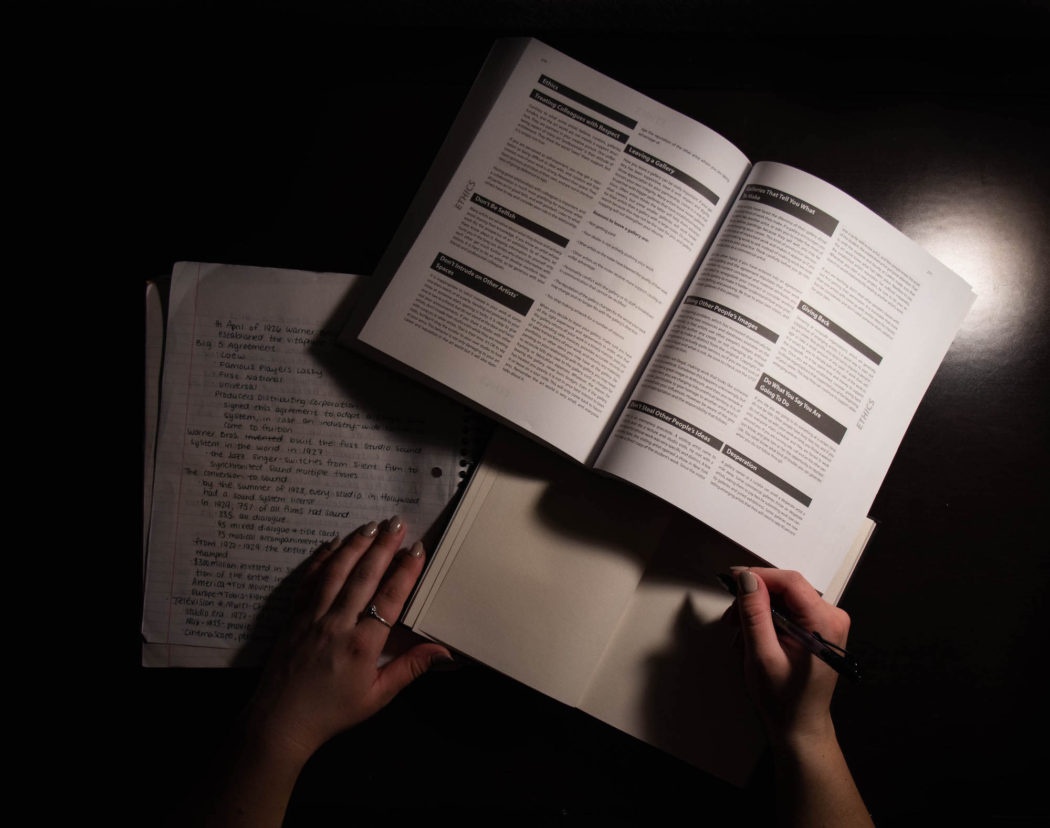Opinion: Procrastination is worse than you think
I would love to write about how amazing procrastination is and how it’s a refined art. Unfortunately, that is just not the case, however much I wish it was.
The Cambridge Dictionary defines the verb procrastinate as: “to keep delaying something that must be done, often because it is unpleasant or boring.” Now, taking the definition and applying it to school-related to-dos, there is a prevalent subject that comes to mind: homework.
Almost everyone, if not everyone, synonymously attributes homework to be boring and procrastinates it. There are a rare few who enjoy homework and, for that, I commend them. Many have said homework gets less boring when you pick a major. However, I am still doing generals so homework is still classified as boring for me.
I talked to a couple of my Utah State University friends about procrastination. I asked three questions and found their responses echoed each other.
First, I asked about how procrastination has affected their life related to school and otherwise. They said it caused them not to do as well on their assignments and brought unnecessary anxiety and stress.
The second question I asked was about what tools work for them to prevent procrastinating assignments. The consensus was using a combination of to-do lists, calendars and the Reminders app on iOS.
The third question I asked was why they procrastinated. Their answers included preferring to not do an assignment, distractions or socializing. Even though I only interviewed a few people, I believe many of us have experienced the same procrastination fallouts and struggles. That is why it is so important to understand procrastination better.
Tim Urban gave a TED Talk in 2016 titled, “Inside the Mind of a Master Procrastinator.” He recounts some relatable and funny stories of him procrastinating on work. At the time though, I am sure they were anything but pleasant for him. He goes on to explain the workings of a non-procrastinator’s brain and a procrastinator’s brain in terms. The non-procrastinators have a “rational decision-maker”; while procrastinators have a “rational decision-maker” and an “instant gratification monkey.”
Now, the explanation might sound silly and unfounded, but there is serious truth that can relate to everyone. The “rational decision-maker” wants to get what is needed done and do all the practical productive things we need to do throughout the day. The “instant gratification monkey” wants to do fun activities and whatever we feel like doing instead of cracking down on what needs to be done. Please note Urban does express there can be overlap based on if we have earned relaxation time after getting our work done.
All the procrastinators know how it goes when we have an assignment. We push it back and back until the deadline is almost up, which is when we kick it into high gear. What exactly makes us “kick it into high gear” though?
Tim Urban labels the stress of a deadline as the “panic monster” which comes and scares the “instant gratification monkey” away. With the arrival of the panic monster, we push through to get the assignment turned in on time. The panic monster allows us to go some time procrastinating, but whenever something has a deadline, we are able to snap out of procrastinating to get the work done.
For some, after procrastinating they can laugh at it because it did not cause any serious problems. However, Tim Urban further expounds there are two types of procrastination: deadline-oriented procrastination and non-deadline-oriented procrastination.
When there is a deadline, the negative effects of procrastination are limited to the deadline and do not usually affect our lives outside of the deadline. But having no deadlines is when procrastination’s negative effects infiltrate our lives.
A few scenarios given by Tim Urban that do not have a deadline are visiting family, physical health, relationships and careers requiring initiative, such as entrepreneurship and the arts. No deadline means no panic monster, which means the negative effects of procrastination keep going. Some examples of the negative effects are not accomplishing any work, dreams being crushed, stress, low self-esteem and unhappiness.
Contained procrastination may not be fun or necessarily healthy, but it works out for the procrastinator the majority of the time. Prolonged procrastination is like a slow-growing fungus that without treatment will cause serious damage.
Urban advises, “We need to think about what we’re really procrastinating on because everyone is procrastinating on something in life. We need to stay aware of the ‘instant gratification monkey’… it’s a job that should probably start today.”
We need to visualize what we want our end goal to be and use that to motivate ourselves. We need to find motivation to activate that inner panic monster to get our goals moving forward instead of remaining stagnant.
Remember that in deadline or non-deadline scenarios, mental health is important too. For World Mental Health Day, I joined a Zoom call regarding self-care. One of the first statements was that self-care is a priority in life and that it should not be the last thing on one’s priority list.
Do not work yourself to the bone. Take time for yourself. Just remember to find a way to prioritize your dreams, work deadlines and mental health. On some days, mental health might be a priority, work might be on other days work, or other days will be spent chasing down your dreams.
Every day can be different. Switch it up. Think about what you want out of your life and go for it. Find a way to push past the instant gratification monkey to be able to reach the gratification of achieving your dreams and being the person you want to be. Do not let instant gratification stand in the way of long-term gratification.

Abbie Clark is a first-year exploratory student. She loves to read, write and spend time with friends and family.

